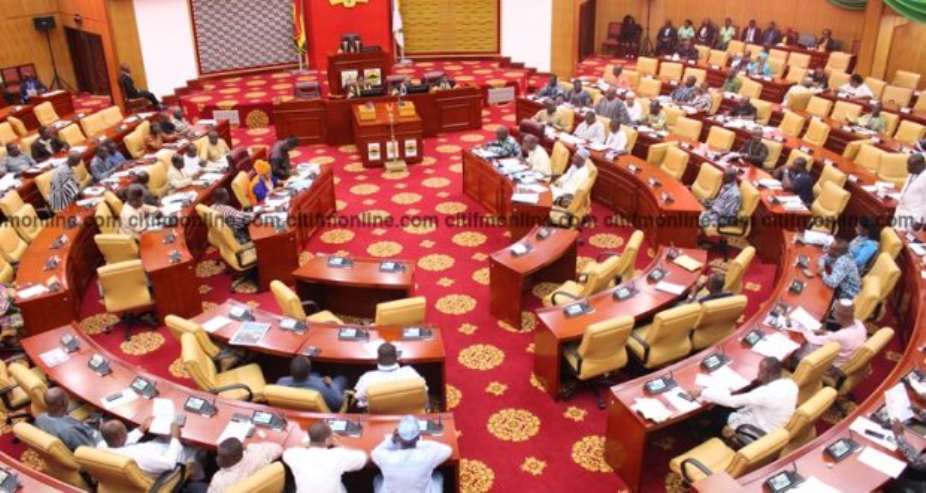A wide definition of political appointments would simply imply public appointments made by politicians, but the notion often also implies appointments made for political purposes, based on political affiliations. Political appointments lie at the core of an issue which has long been of interest to political science and public administration, namely the relationship between politics and administration. Early thinkers on the subject (Wilson 1887; Weber 1968) tended to present politics and bureaucracy as two separate worlds which would not blend easily and only at a cost to both. This subject is of great concern to all because it is on this basis that governments prosper and nations grow and develop.
The reasons why career bureaucrats are not usually patronised are that: Career bureaucrats cannot be trusted to carry out an Administration's policies and that political appointees are essential to keep them in line.
All political appointees owe their primary loyalty to the President and his policies and therefore speak with one voice. That is why you hardly see political appointees having different voices on an issue. There are instances where you have to continue a lie because the head of the political institution lied on same. You can’t really say that the President, the one who appointed you and the one whom you are an obedient servant to; lied. You either continue with the lies or you keep mute. That is one aspect of the bane of political appointees.
It is interesting to know that less overt political appointments are rewarded to political supporters who mostly don’t just have the professional conduct to handle same. They do that simply because they belong to that political party. There are a whole lot of appointees who are professionals in their given field but the fact that they are appointed by a political head, their professional works are sometimes compromised to achieve a particular motive in favour of the government of the day. That is why you sometimes see some professionals resigning from their appointed field in principle.
Political appointees lifeline is mostly about tuning the lives of the citizens to always see good in whatever they do. They would want to always take credit for what career bureaucrats do but would never take blame for hardcore decisions from same which are politically disadvantaged to them. This is simply on the fact that political appointees would definitely come back to pray for votes from the citizens to keep them in power.
Political appointees are politically accountable to the people for the uncountable promises made in the past during campaign trails. They (political appointees) would want to patch up their lapses by wanting career bureaucrats to always mention their names during their professional duties. That is why you normally see District Coordinating Directors and other Chief Directors having challenges with political appointees.
However, career bureaucrats who want a smooth ride and wanting to do ‘real business’ would always dance to the tunes of the political appointee irrespective of its ramifications thereafter.
It is interesting to put on record that most political appointees, upon first assuming their positions, share the popularly-held image of the lazy/recalcitrant/uncreative bureaucrat. Upon actual exposure to their subordinates, however, they invariably change their minds, and, by the time they leave, are singing the praises of the career staff, extolling their intelligence, loyalty, and dedication.
Most civil servants are committed, and care deeply about what they are doing. But it is often forgotten that they do not create the laws and programs they administer.
I, to some extent always admired some political appointees with superb leadership and management skills and on the other side, the career civil servants (career bureaucrats) with the political savvy to succeed under either political party. For the two groups to work effectively and efficiently, both needs to understand the mindset, strengths and weaknesses of the other. Anything short of that is going to stress the workings of each side.
We can develop Ghana in its totality just like what we see in the Western world if we have strong institutions regardless of the political force in power. We can, if we realise the professional angle with which career diplomats are coming from and be able to work with them.
Abdul-Razak Lukman
[email protected]
+233.24.244.3937





 We’ll protect state wealth from opaque deals – Prof Jane Naana
We’ll protect state wealth from opaque deals – Prof Jane Naana
 Mauritania president says running for second term in June polls
Mauritania president says running for second term in June polls
 I won't ever say I was a mere driver’s mate' — Prof. Opoku-Agyemang
I won't ever say I was a mere driver’s mate' — Prof. Opoku-Agyemang
 2024 polls: 'EC struggling to defend credibility'— Prof. Opoku-Agyemang
2024 polls: 'EC struggling to defend credibility'— Prof. Opoku-Agyemang
 Akufo-Addo gov't's 'greed, unbridled arrogance, unrestrained impunity, sheer dis...
Akufo-Addo gov't's 'greed, unbridled arrogance, unrestrained impunity, sheer dis...
 Election 2024: Ghana needs an urgent reset, a leadership that is inspiring – Ma...
Election 2024: Ghana needs an urgent reset, a leadership that is inspiring – Ma...
 Partner NDC to rollout a future of limitless prospects – Prof Jane Naana Opoku-A...
Partner NDC to rollout a future of limitless prospects – Prof Jane Naana Opoku-A...
 NPP will remain in gov’t till Jesus comes — Diana Asamoah
NPP will remain in gov’t till Jesus comes — Diana Asamoah
 Sunyani Technical University demands apology from former SRC president over sex-...
Sunyani Technical University demands apology from former SRC president over sex-...
 'Dumsor' was resolved by Mahama but ‘incompetent' Akufo-Addo has destroyed the g...
'Dumsor' was resolved by Mahama but ‘incompetent' Akufo-Addo has destroyed the g...
